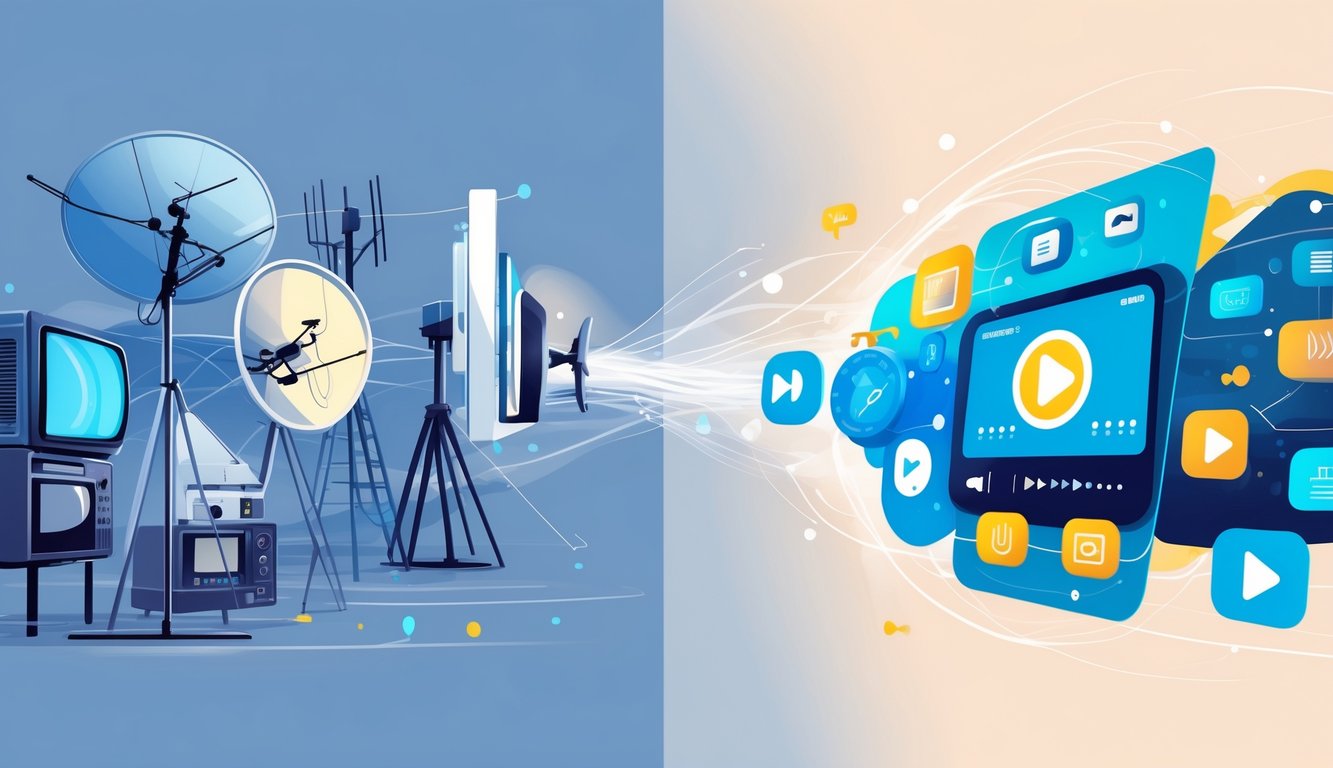
The Political Economy Of Streaming Media
Honestly, who’s even making money here? My login asks for “verification” twice a day, mergers keep making headlines, and the price creeps up so slowly I almost don’t notice. Broadcasters keep shuffling between new subscriptions and those cable bundles that, for some reason, refuse to die. Why am I still paying for both?
Subscription Models And Premium Content
Netflix once charged me twice in the same week. No explanation, no apology. These streaming subscriptions? They’re like gym memberships. You join without thinking, quitting is a nightmare, and right when you get used to it, there’s a new “premium” tier dangling in your face. Berkeley’s Economic Review says Netflix and Hulu started out licensing other people’s stuff, but now they’re burning through cash to make their own exclusives. Not that it makes picking a show any easier. Actually, I think it’s worse.
I keep hearing industry types complain about Hollywood depending on Silicon Valley for distribution and tech. It’s awkward. And the mergers? They just keep coming. Taylor & Francis analyzed it, and apparently, the cost of building these streaming giants means endless restructuring. So, in practice, there’s less choice. Disney, Paramount, Amazon, Netflix—doesn’t matter how many logos they slap on the homepage, it’s all the same handful of mega-corps. And always, always, another upsell to “ad-free.” Whatever that means this month.
Shifts In Revenue For Traditional Broadcasters
Back before streaming, I worked at a tiny affiliate that panicked every time Netflix added another old sitcom. Now? Broadcasters bounce between frantic cost-cutting and these “digital pivots” that sound way more exciting than they are. Advertisers aren’t sticking around; ratings tank, revenue nosedives. The old ad model? Gone, almost overnight. Platforms are slicing up Sunday-night audiences and yanking sports away from broadcast like it’s a heist.
Pay TV limps along, bundling streaming with cable like that’s going to fix anything. Studies—like this one from Oxford’s Journal of Communication—point out it’s really just a few companies hoarding everything. Newsrooms get gutted, “cross-platform synergy” just means more work for less audience. Streaming ad budgets grow, but for most broadcasters, it’s patchwork and crossed fingers.
Cultural Shifts In The Era Of Streaming
It never stops. Algorithms shove new stuff at me like overenthusiastic mall workers with perfume samples. I’m supposed to keep up with Spanish dramas, Korean zombies, and Swedish baking shows, all before dinner? Everyone I know is drowning in content, and I can’t tell what counts as actual “culture” versus just more noise.
Cultural Citizenship And Global Content Access
Barely finish one episode and the next foreign show is already auto-playing. “Cultural citizenship”? Seems less about passports and more about whether you’re in the group chat for the latest global hit. Netflix floods my queue with Turkish crime, then—poof—it’s gone because of licensing drama or some lawsuit nobody warned me about. Supposedly, over 60% of Netflix’s 2023 catalog came from outside the U.S. My old college professor called it “culturally seismic.” I just call it “overwhelming.”
But it’s weird. Local news feels tiny, like it’s limping behind while binge-worthy stations multiply. Everything’s global, but do I remember who produced that Turkish series? Nope. Streaming makes this weird club—if you can’t pay, you’re out, so “access” is just another wall. Sure, Disney+ and Amazon Prime can drop a new show in 70+ countries instantly. Just ignore the censorship and subtitle fails if you want to stay sane. There’s comfort in knowing tomorrow I could wake up to a Swedish sitcom or some Korean horror, right next to a “Gossip Girl” rerun. The world’s louder and messier, and, honestly, it feels like nobody’s steering the ship.
Shaping Identity Through Shared Viewing Experiences
“Shared viewing” is a joke now. In the nineties, we all argued about the same sitcoms at school. Now? I’m in group chats pinging at 2 a.m. about a Danish documentary nobody’s finished, but everyone claims they have. One day I’m quoting a Nigerian comedy, the next I’m lost in British baking—but my family down the street hasn’t heard of any of it. A 2024 study in Global Media Journal says streaming’s “reshaped attention spans and altered group engagement.” Translation: we talk about shows more but see each other less.
Every platform builds its own little tribes. Reddit threads spiral about plot holes I missed, friends in Germany laugh at jokes that got lost in my subtitles (seriously, the bread joke in episode six just turned into three dots). This “shared” culture isn’t unified; it’s fractured and multiplying. The only things that really stick are live events—Eurovision, Super Bowl—because everyone’s yelling on Twitter at once. My sense of what “everyone’s watching” is blurrier, more frantic, and a little lonelier, even as invites to group streams and spoiler-dodging marathons pile up. If I ever get a break between autoplay episodes, maybe I’ll figure out who my tribe is now.



